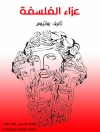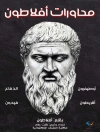Plato: Complete Works is a definitive collection of the philosophical texts of one of Western thought’s most significant figures. Encompassing dialogues, letters, and philosophical treatises, this anthology reveals Plato’s explorations of justice, morality, and the nature of reality. His literary style, characterized by Socratic dialogue and allegory, invites readers to engage actively with profound questions about the human condition. Within this collection, the interplay of rhetoric and dialectic shines, offering insightful commentary on the political and ethical landscape of ancient Athens while intertwining it with timeless philosophical inquiries. Plato, a student of Socrates and mentor to Aristotle, lived during the tumultuous Golden Age of Athens. His exposure to the political strife and intellectual vigor of his time profoundly influenced his writings. Deeply invested in the pursuit of truth and the ideal society, he sought to meld philosophy with practical governance, as evidenced in texts such as The Republic. His concern for the moral fabric of society reflects a lifelong commitment to understanding and improving the human experience. This anthology is an essential read for anyone striving to grasp the roots of Western philosophy. Scholars and novices alike will benefit from Plato’s comprehensive insights into ethics, politics, and metaphysics, making it an indispensable resource for reflective thinkers and those seeking a deeper understanding of philosophical inquiry.
Tentang Penulis
Plato, the preeminent Greek philosopher, was born around 428/427 BCE in Athens and played a foundational role in Western philosophy. A disciple of Socrates and mentor to Aristotle, Plato’s contributions to philosophy, political theory, and educational thought remain influential to this day. He founded the Academy in Athens, one of the first institutions of higher learning in the Western world. His dialogues, wherein he employed the Socratic method of questioning to explore a wide array of subjects, have been preserved in a collection known as ‘Plato: Complete Works.’ In these dialogues, the main character is often Socrates, who serves as the vehicle for Plato’s ideas. Through works such as ‘The Republic, ‘ ‘Symposium, ‘ and ‘Phaedo, ‘ Plato delved into topics like ethics, politics, metaphysics, and epistemology. He is best known for his theory of Forms, positing abstract, non-physical essences that constitute the highest and most fundamental kind of reality, as opposed to the material world that he considered merely a shadow of this higher truth. Plato’s allegory of the cave, found in ‘The Republic, ‘ remains a profound commentary on the human condition, perception, and knowledge. His literary style, marked by its depth and dialectical approach, together with his use of metaphor and myth, has established his enduring legacy in the annals of classical literature and thought.












